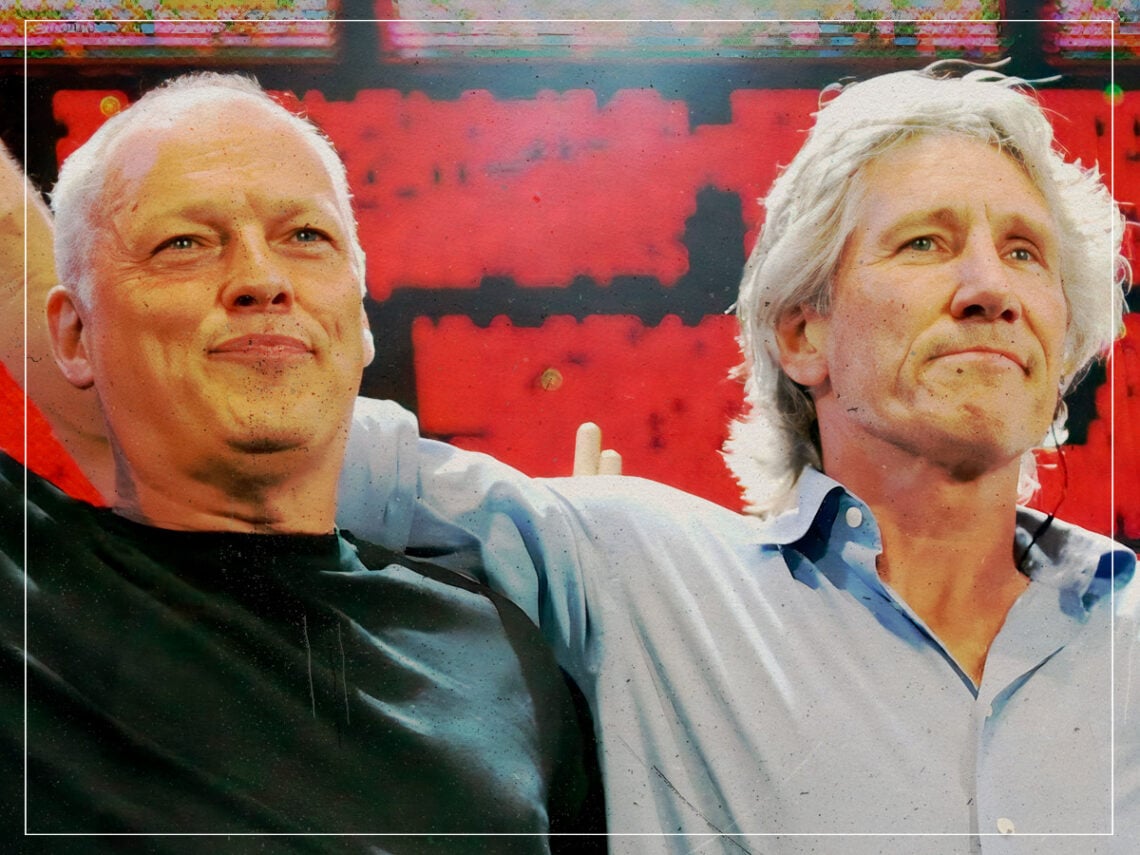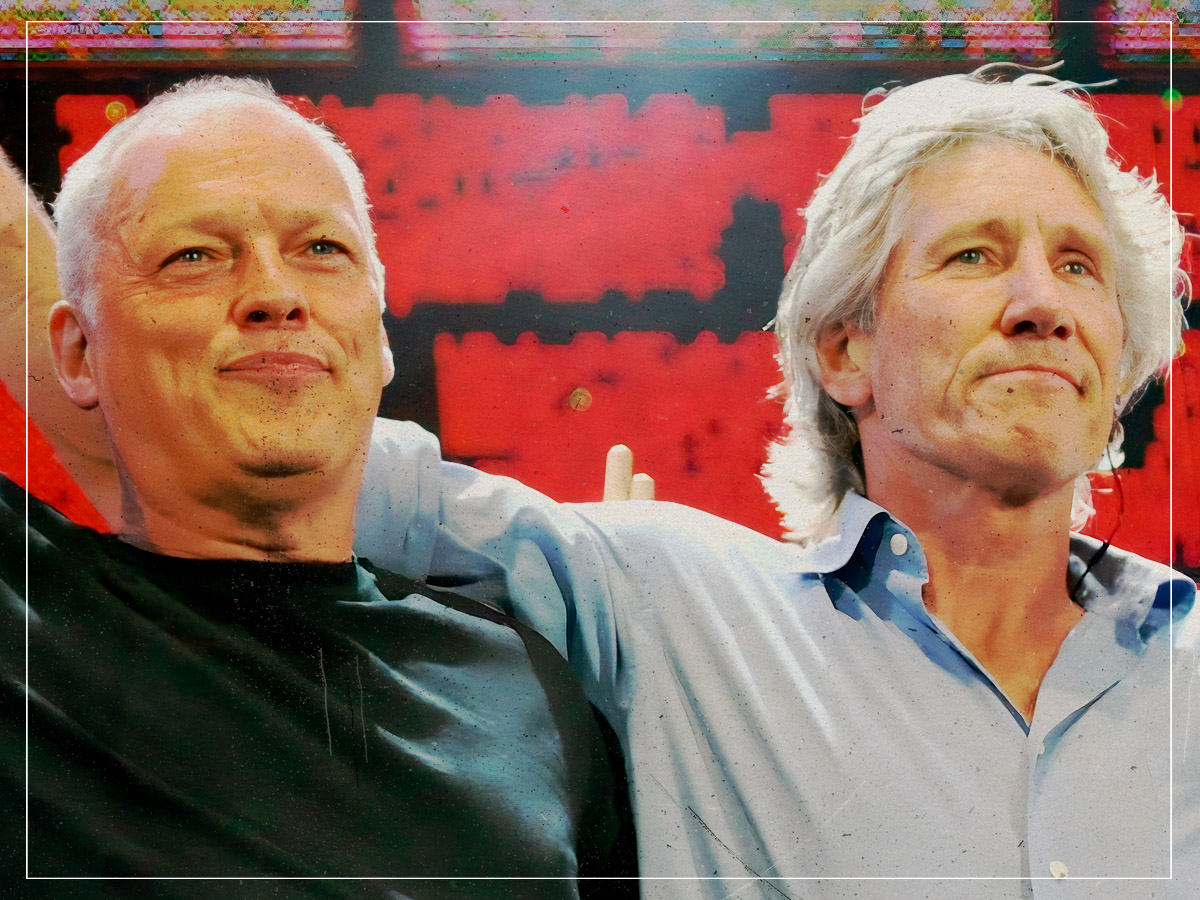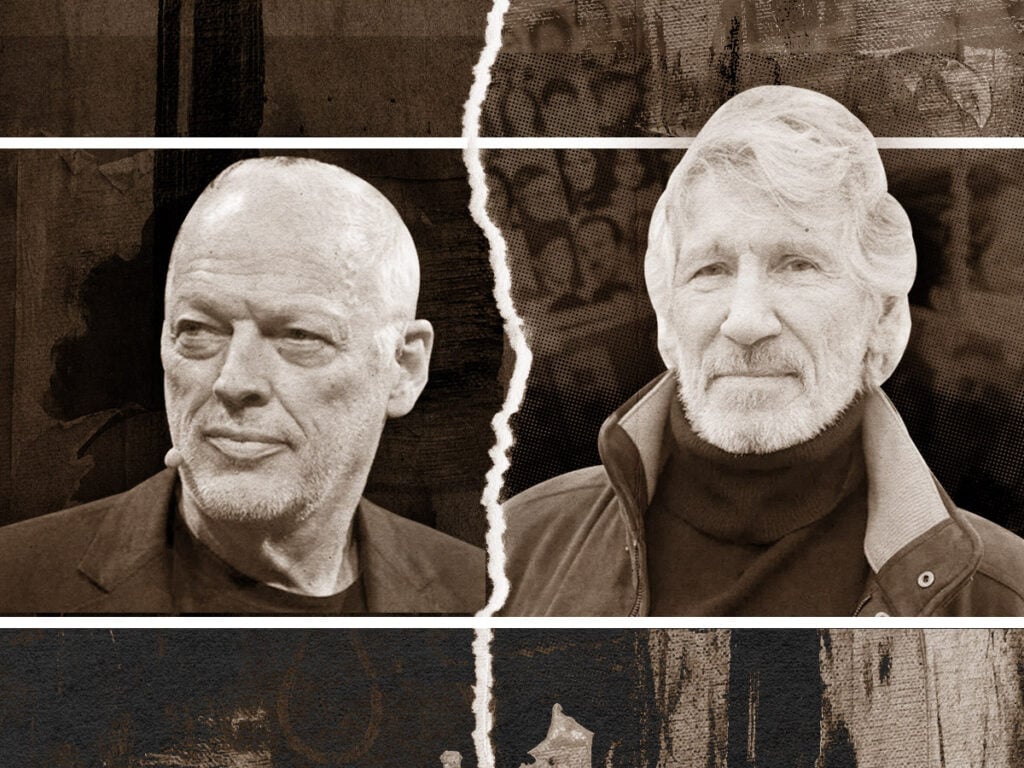
(Credits: Far Out / Alamy)
Tue 21 October 2025 12:14, UK
The story of Pink Floyd is a famous one, with arguably the most notorious aspects being the fraught relationship between co-frontmen Roger Waters and David Gilmour. While the pair were not always quarrelling, as the years passed and Waters tightened his grip on the creative side, their relationship reached boiling point. It caused a schism that has never been healed.
Famously, one of the most significant chapters in the band’s career came during the making of 1983’s The Final Cut. The last album to feature Waters, the recording process produced an unbridgeable gap between him and Gilmour, with them still at each other’s throats today.
Ultimately, it was such a weird and uncomfortable time, which saw Waters basically rule the roost in terms of creative production, that it led to Gilmour disliking the finished product. Unsurprisingly, most of his material for the record had been discarded by Waters, so this might have something to do with his outlook.
Gilmour discussed The Final Cut in 1984. He said: “Basically, Roger had one idea of how he felt the album should be and a very strong idea of how he wanted it to be. I simply thought he was wrong in the approach to it in several areas, and I told him so.(I) Tried to get some change, and he wasn’t willing to. It got to the point of arguments being so sort of severe because our outlet was so opposed at that time.”
He continued: “But he didn’t want me to continue producing because it was not achieving anything. It was just my opinion was so different that it was just being counterproductive. So, I stopped working on the production of the album and left it entirely to him and said, ‘You go ahead and finish it.’”
As outlined in our broader piece about how The Final Cut signalled the end for the classic Pink Floyd, Gilmour was reduced to what was essentially a session guitarist on the album because Waters sought to bring his vision to life in every minute detail. Duly, Gilmour reflected: “I still think that the way I wanted to do (it) would have been a much better way of doing it.”
According to Gilmour, Waters felt he could produce the album independently, without the rest of the band. Of course, Gilmour did not believe this to be true, and the quartet was already falling apart at the seams, which only compounded matters for him. Drummer Nick Mason was battling a failing marriage, and keyboardist Richard Wright was long gone, thanks to the stress of The Wall. To him, “three good songs” exist on The Final Cut.
The Final Cut may well be one of the band’s better efforts, but it does hold a certain resignation which will not please avid Pink Floyd fans. The album represents a moment where David Gilmour gives up the ghost and lets Roger Waters run wild. The record was originally written to be the soundtrack to The Wall film, but was given its own release after Waters realised the album’s potential. A lot of that spark came from Britain’s involvement in the Falklands War and therefore acted as a moment of global protest—something Waters would become very astute at.
The guitarist said: “I think a lot of the music is not up to the standard. There are three good songs on it, and I think the rest are rather weak. I don’t have anything, particularly against the concept, I find its tone a little too complaining about myself personally. There’s that, and there’s the lack of good material on it.”
Gilmour concluded his account: “Overall, that compromise tends to make something work. Roger obviously thinks he can produce it all by himself without my production help, and I think he can’t. He writes most of the stuff, he writes the concept of what’s going on. Therefore, he thinks he has more of a right to say about how it should be produced. I tend to agree that he probably should have more to do with it but not all to do it.”
The truth is, as well as being a moment when Waters got to pick his own adventure, it also marked the ending of the band. Waters would soon leave, and the creative differences between him and Gilmour, which, at times, felt possible to build bridges over, began to feel like unstoppable, widening chasms. The two men would rarely work together after the record’s release, and today they are further away from compromise than ever before.
Related Topics


